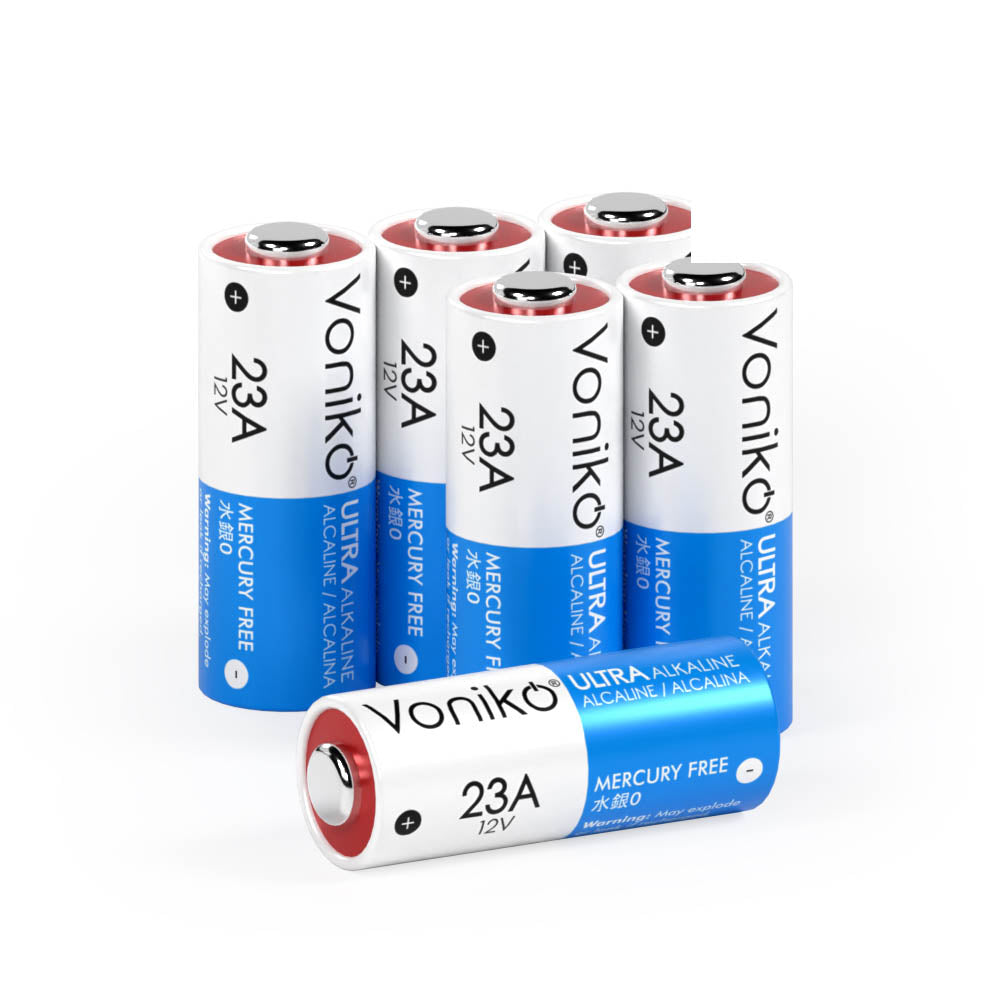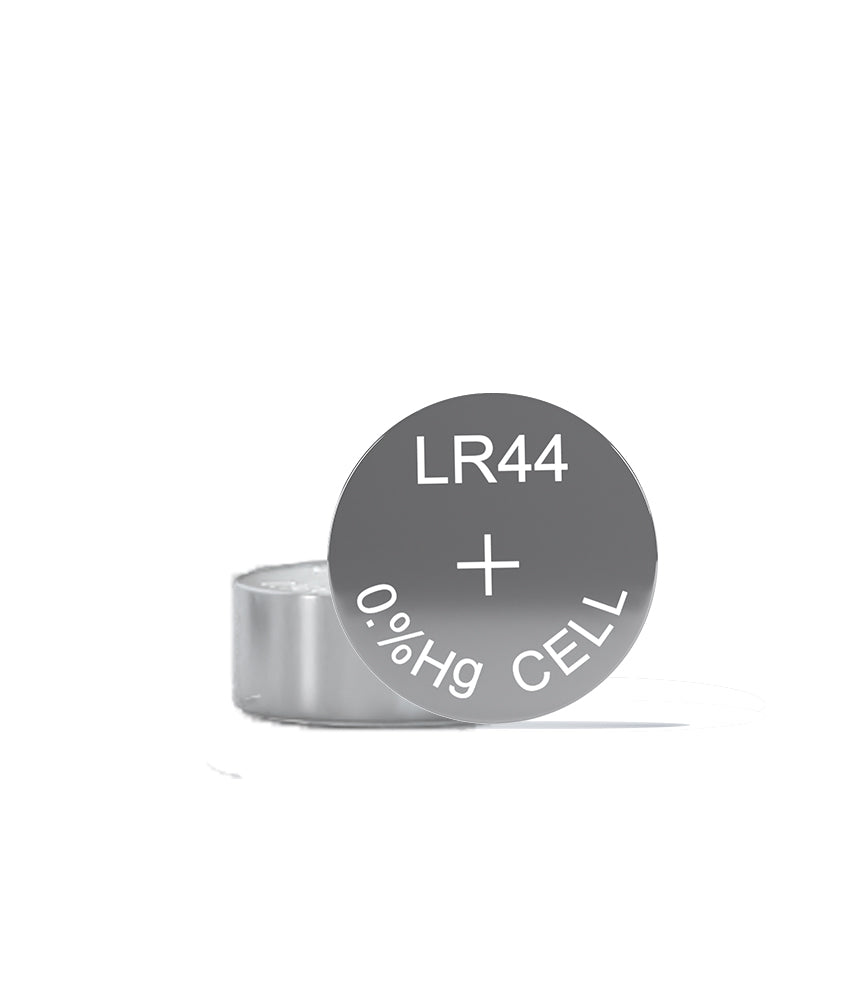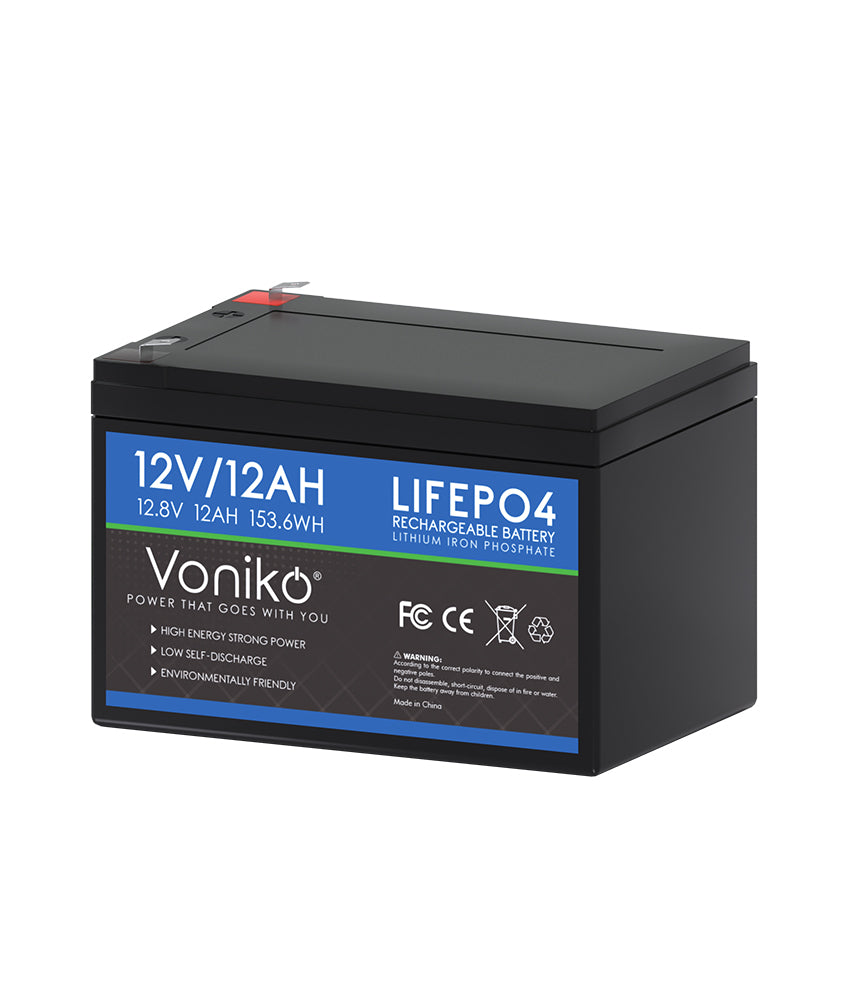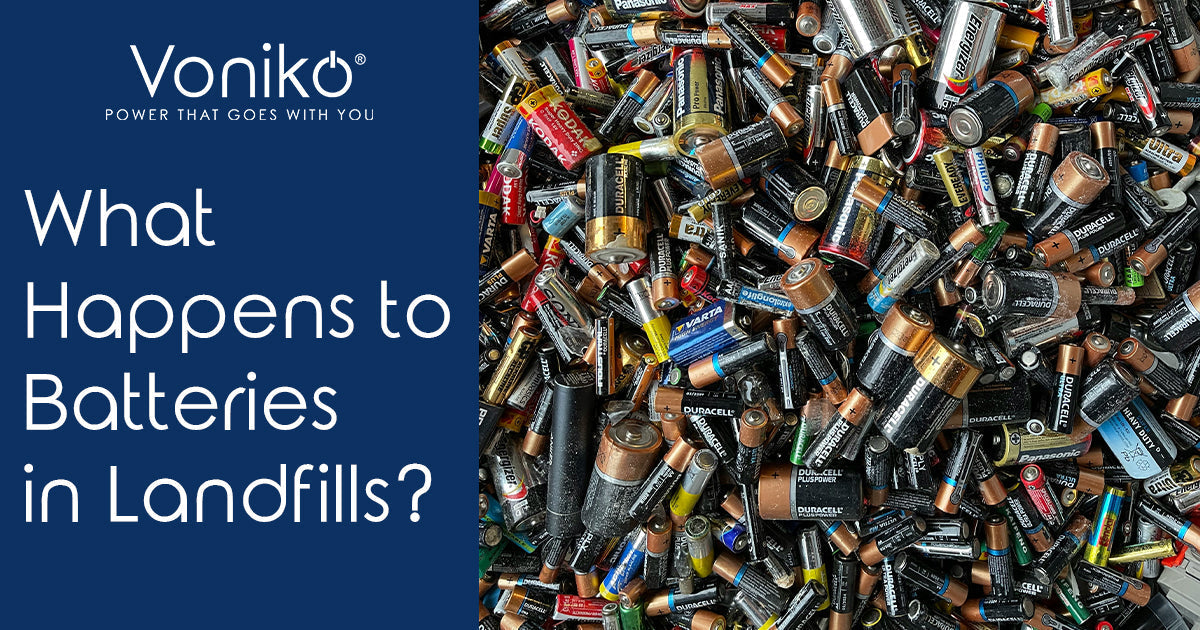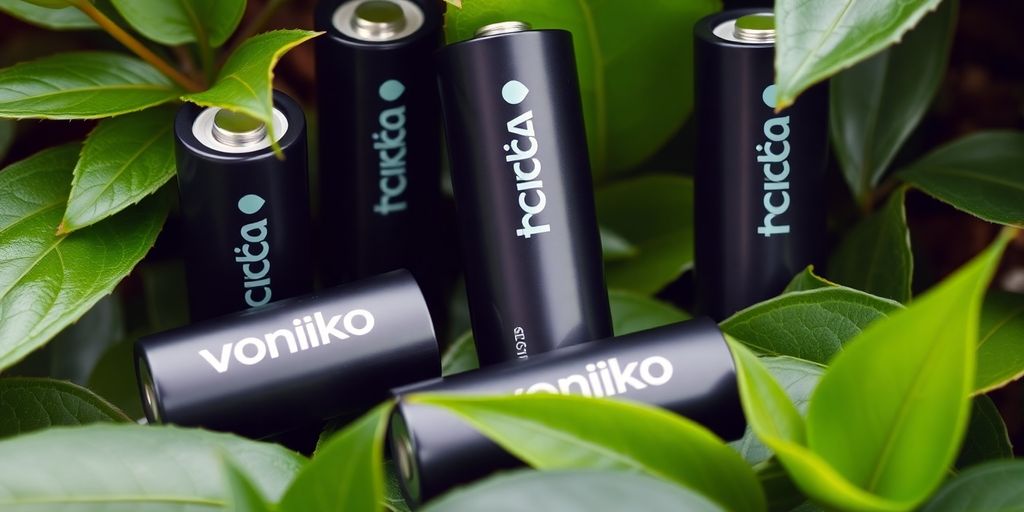Okay, so when we talk about batteries in landfills, we're not just talking about one kind. There's a whole mix of stuff in there. You've got your everyday alkaline batteries, like the ones you use in your remote controls. Then there are lithium-ion batteries, which are in phones and laptops. And don't forget the older types like nickel-cadmium (NiCd) and lead-acid batteries. Each type has its own set of chemicals and materials, which means they break down differently and pose different risks. It's a real mixed bag when it comes to battery disposal laws.
Chemical Components of Batteries
Batteries are basically chemical cocktails. The specific ingredients depend on the type of battery, but some common ones include heavy metals like lead, mercury, cadmium, and nickel. Lithium-ion batteries contain lithium, cobalt, and other metals. These chemicals are what make the batteries work, but they're also what make them dangerous when they end up in landfills. When the battery casing breaks down, these chemicals can leak out and contaminate the soil and water. It's not a pretty picture. The environmental impact of battery production is significant.
Environmental Impact of Battery Materials
So, what's the big deal with these chemicals? Well, heavy metals are toxic and can persist in the environment for a long time. They can contaminate soil, which affects plant growth and can get into the food chain. If these chemicals leach into groundwater, they can pollute drinking water sources. Plus, some battery materials can react with other substances in the landfill to create even more harmful compounds. It's a chain reaction of bad news. The mining of these materials also has a high environmental cost.
The Journey of Batteries in Landfills
Initial Breakdown and Decomposition
Okay, so picture this: a battery ends up in a landfill. It's not like it just disappears, right? First, the outer casing starts to break down. This can take a while, depending on what it's made of. Plastic casings might crack and crumble, while metal ones could rust and corrode. The initial breakdown is usually a physical process, where the battery's structure weakens.
Then, the real fun begins. Moisture and other stuff in the landfill speed things up. The battery's components start to react with each other and the environment. This leads to the release of chemicals, which is definitely not a good thing. It's a slow process, but it's constant, and it's happening to tons of batteries all over the place. It's important to consider producer responsibility to mitigate this issue.
Chemical Leaching and Soil Contamination
This is where things get seriously messy. As batteries decompose, they leak chemicals into the surrounding soil. We're talking heavy metals like lead, mercury, cadmium, and nickel. These aren't just harmless substances; they're toxic and can stick around for a long, long time. The big problem is that these chemicals can contaminate the soil and, even worse, seep into the groundwater. This is called chemical leaching, and it's a major environmental headache. The hazards of metal extraction are well documented, and landfills are a prime example of this.
Here's a quick rundown of some common battery chemicals and their potential impacts:
- Lead: Neurotoxin, affects the nervous system and kidneys.
- Mercury: Highly toxic, damages the brain and kidneys.
- Cadmium: Carcinogen, linked to kidney and bone damage.
- Nickel: Allergen, can cause skin irritation and respiratory problems.
Impact on Local Ecosystems
So, these chemicals leach into the soil and water. What happens next? Well, they can wreak havoc on local ecosystems. Plants can absorb these toxins, which then get passed up the food chain when animals eat those plants. Aquatic life is especially vulnerable. Contaminated water can harm fish, amphibians, and other organisms. It's a domino effect, where the initial contamination spreads and affects everything around it. It's a grim picture, and it highlights why e-waste management is so important. We need to think about the long-term consequences of just tossing batteries in the trash. The goal is to keep these batteries out of landfills in the first place, and recycling is a great way to do that.
Timeframes for Battery Decomposition
How Long Different Batteries Take to Decompose
Okay, so you toss a battery in the trash. What happens next? Well, it's not pretty, and it's definitely not fast. Different types of batteries have wildly different decomposition times. Simple alkaline batteries, the kind you use in your remote, can take up to 100 years to decompose in a landfill. That's a long time! Battery recycling is a much better option.
Lithium-ion batteries, found in our phones and laptops, are a whole other beast. They can last even longer, potentially several centuries, because of their complex chemical makeup and robust casings. Button cell batteries, those tiny ones in watches and hearing aids, also stick around for a very long time due to their mercury content. It's kind of scary when you think about it. I remember reading about environmental degradation caused by improper disposal, and it really made me think.
Factors Affecting Decomposition Rates
So, what makes some batteries decompose faster than others? Several factors are at play. The type of materials used in the battery is a big one. Some metals and chemicals break down more readily than others. The landfill environment itself also matters. Things like moisture levels, temperature, and the presence of other waste can all influence how quickly a battery degrades. For example, a dry landfill might slow down decomposition, while a wet one could accelerate chemical leaching. It's all pretty complex. I've been trying to reduce my environmental footprint lately, and proper battery disposal is definitely part of that.
Comparative Analysis with Other Waste
To put battery decomposition times into perspective, let's compare them to other common waste items. Plastic bottles, for instance, can take 450 years or more to decompose. Food waste, on the other hand, breaks down much faster, often within a few months or years. Batteries fall somewhere in the middle, but their potential for chemical leakage makes them a particularly concerning type of waste. The long decomposition times combined with the toxic materials they contain make proper disposal and recycling essential.
Here's a quick comparison:
- Food Waste: Months to years
- Alkaline Batteries: Up to 100 years
- Plastic Bottles: 450+ years
- Lithium-ion Batteries: Centuries
It's clear that we need to be more mindful of how we dispose of batteries. I'm going to start looking for recycling programs in my area. It's a small step, but every little bit helps!
Health Risks Associated with Landfilled Batteries
Toxic Chemicals Released into the Environment
When batteries decompose in landfills, they release a cocktail of toxic chemicals into the surrounding environment. These chemicals can include heavy metals like lead, mercury, cadmium, and nickel, as well as corrosive acids and alkaline substances. The specific chemicals released depend on the type of battery and its chemical composition. For example, lithium batteries contain lithium and various other materials that can contaminate soil and water. These substances can leach into the soil, groundwater, and surface water, posing a significant threat to both human and environmental health. The release of these toxins can persist for many years, creating long-term contamination issues.
Effects on Human Health
The toxic chemicals released from landfilled batteries can have serious effects on human health. Exposure can occur through several pathways, including ingestion of contaminated water or food, inhalation of contaminated air, and direct contact with contaminated soil. Lead exposure, for instance, can cause neurological damage, developmental problems in children, and cardiovascular issues in adults. Mercury is a potent neurotoxin that can affect the brain, kidneys, and lungs. Cadmium exposure is linked to kidney damage, bone problems, and increased cancer risk. Even low-level, chronic exposure to these chemicals can lead to a range of health problems over time. It's a real concern, especially for communities living near landfills where e-waste management is not properly handled.
Long-Term Environmental Consequences
The long-term environmental consequences of landfilled batteries are far-reaching and can be devastating. Soil contamination can disrupt plant growth, affect soil fertility, and alter the composition of soil microorganisms. Water contamination can harm aquatic life, contaminate drinking water sources, and disrupt ecosystems. The accumulation of these toxins in the food chain, known as biomagnification, can further amplify the risks to wildlife and humans. For example, heavy metals can accumulate in fish, making them unsafe for consumption. The environmental damage caused by improper battery disposal can persist for decades, requiring extensive and costly remediation efforts. It's a problem that really needs more attention, and it's something we should all be thinking about when we toss out old batteries. Here's a quick list of long-term effects:
- Soil degradation and reduced fertility
- Water pollution and harm to aquatic ecosystems
- Bioaccumulation of toxins in the food chain
- Disruption of natural habitats and biodiversity
Recycling Alternatives to Landfilling Batteries
Current Recycling Processes
So, what happens when batteries actually get recycled? Well, it's a multi-step process, and it varies a bit depending on the type of battery. Generally, batteries are sorted by their chemistry – think lead-acid, lithium-ion, nickel-cadmium, and so on. Then, any plastic parts are removed and often burned off, but with scrubbers to catch the bad stuff. After that, the metal components are chopped up and melted down so that the different materials can be separated. Non-metal materials float to the top as slag, which is then removed. This allows for the recovery of valuable metals like nickel and cobalt.
Benefits of Battery Recycling
Recycling batteries is a big deal for a few reasons. First off, it keeps those nasty chemicals out of landfills, which prevents soil and water contamination. It also helps conserve natural resources because we're reusing materials instead of constantly mining for new ones. Plus, recycling can reduce the environmental impact of manufacturing new batteries. For example, recycling e-waste reduces reliance on mining. It's a win-win for the environment and resource management. We have been able to recycle about 350 lbs of batteries so far.
Challenges in Battery Recycling
Okay, so recycling batteries sounds great, but it's not always easy. One of the biggest hurdles is the cost. It can be expensive to set up and run recycling facilities, especially with all the different battery types out there. Also, the technology for recycling some batteries, like lithium-ion, is still pretty new and not as efficient as it could be. And let's not forget about logistics – collecting and transporting batteries from all over the place can be a real headache. Despite these challenges, it's important to keep pushing for better recycling programs because the alternative – batteries in landfills – is way worse. Municipalities are raising awareness of the situation.
Legislation and Regulations on Battery Disposal
Overview of Battery Disposal Laws
Battery disposal isn't just about tossing them in the trash; there's a whole web of laws and regulations governing what you can and can't do. These laws exist to minimize the environmental damage caused by toxic battery components ending up in landfills. For example, many places have banned the disposal of certain types of batteries, like rechargeable ones, in regular trash. Instead, they require you to take them to designated collection points or recycling centers. These regulations can vary quite a bit depending on where you live, with some states or countries having much stricter rules than others. It's all about trying to keep those harmful chemicals out of our soil and water.
Impact of Regulations on Recycling Rates
Do these battery disposal laws actually make a difference? The short answer is yes, but it's complicated. When there are clear rules and convenient ways to recycle, more people tend to do it. For example, the European Union’s Waste Electrical and Electronic Equipment (WEEE) Directive makes manufacturers responsible for the safe disposal and recycling of their products. This encourages companies to design devices that are easier to recycle. However, even with regulations in place, there are still challenges. Not everyone knows about the laws, and sometimes it's just easier to throw batteries away. Plus, the effectiveness of these laws depends on how well they're enforced and whether there are enough recycling facilities available. Ultimately, the goal is to create a system where recycling is the norm, not the exception.
Future Directions for Battery Legislation
What's next for battery disposal laws? Well, things are constantly evolving as we learn more about the environmental impact of batteries and develop new recycling technologies. One trend is Extended Producer Responsibility (EPR), where manufacturers take on more responsibility for the entire lifecycle of their products, including disposal. This could mean designing batteries that are easier to recycle or setting up collection programs. Another area of focus is standardizing regulations across different regions to make it easier for companies and consumers to comply. We might also see more emphasis on battery labeling to help people identify what type of battery they have and how to dispose of it properly. The future of battery legislation is all about creating a more sustainable and circular economy for these power sources. It's also about making sure that everyone, from manufacturers to consumers, plays a role in keeping our planet clean. The Basel Convention identified e-waste as a problem in 2002, but we are still far from reaching a world with zero e-waste. Our increasing reliance on digital devices means that without better recycling programs, we risk draining natural resources and creating massive e-scrap. Here's a quick look at some potential future directions:
- Stricter Enforcement: Making sure existing laws are actually followed.
- Technological Advancements: Supporting research into better recycling methods.
- Global Harmonization: Creating more consistent rules worldwide.
It's a complex issue, but with the right laws and a bit of effort, we can definitely improve how we handle battery waste.
Public Awareness and Education on Battery Disposal

Importance of Community Engagement
Getting everyone involved is super important when it comes to battery disposal. If people don't know why it matters or how to do it right, then recycling efforts just won't be as effective. Community programs can really help spread the word and make it easier for people to participate. Think about local workshops, collection drives, and even just simple flyers explaining the dos and don'ts of battery disposal. When people understand the impact of their actions, they're way more likely to make responsible choices.
Educational Initiatives for Proper Disposal
We need to teach people about battery disposal from a young age. Schools can incorporate lessons on sustainable waste management into their curriculum, showing kids the environmental consequences of tossing batteries in the trash. Adults can benefit from public service announcements, online guides, and even partnerships with local stores that sell batteries. Clear, easy-to-understand instructions are key. For example, a simple infographic showing how to identify different battery types and where to recycle them can go a long way. It's also important to highlight the dangers of improper disposal, like the risk of fires or soil contamination.
Role of Corporations in Promoting Recycling
Companies that make and sell batteries have a big responsibility here. They should be actively involved in promoting recycling and making it easier for consumers. This could mean setting up on-demand pickups programs, partnering with recycling centers, or even designing batteries that are easier to recycle in the first place. Producer responsibility is a big deal. Corporations can also run ad campaigns to educate the public about the importance of battery recycling and the specific steps they can take. By taking ownership of the problem, companies can really drive change and help create a more sustainable future. They can also provide financial support for community recycling programs and invest in research to improve recycling technologies.
It's really important to know how to properly dispose of batteries. Many people don’t realize that throwing them in the trash can harm the environment. By learning about safe battery disposal, we can all help keep our planet clean. Visit our website to find out more about how you can make a difference today!
Wrapping It Up
In conclusion, tossing batteries in landfills is a bad idea. They don’t just sit there and disappear; they can leak harmful chemicals into the ground and water, which is a big problem for the environment. Plus, it can take hundreds of years for some batteries to break down. Recycling is definitely the better option, but right now, only a small fraction of batteries get recycled. We really need to step up our game when it comes to battery disposal and recycling. It’s not just about keeping our planet clean; it’s about making sure we have the resources we need for the future. So, next time you have a dead battery, think twice before throwing it away. Let’s do our part to keep our environment safe.




